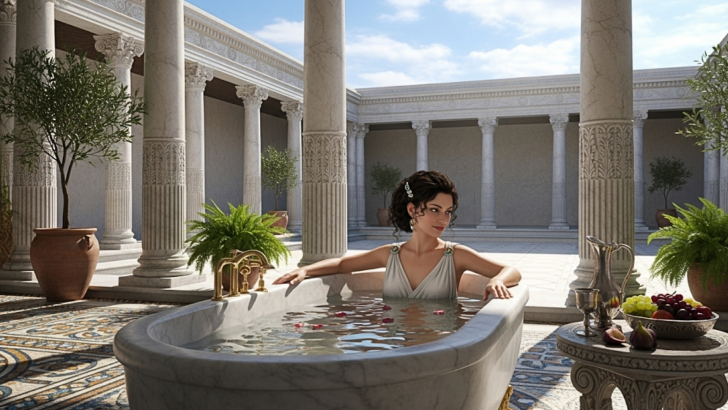The ancient Romans lived in bustling cities, fought wars, and managed complex societies, so stress was nothing new to them.
While their world looked very different, many of their remedies for easing worry and strain still feel surprisingly modern.
From baths and gardens to rituals and writing, Romans found creative ways to restore balance.
They understood that the mind and body needed care to keep up with life’s demands.
By looking back at their practices, we find simple, timeless methods that remain useful in our own fast-paced lives. Here are ten Roman remedies for stress that continue to make sense today.
1. The Healing Power of Baths
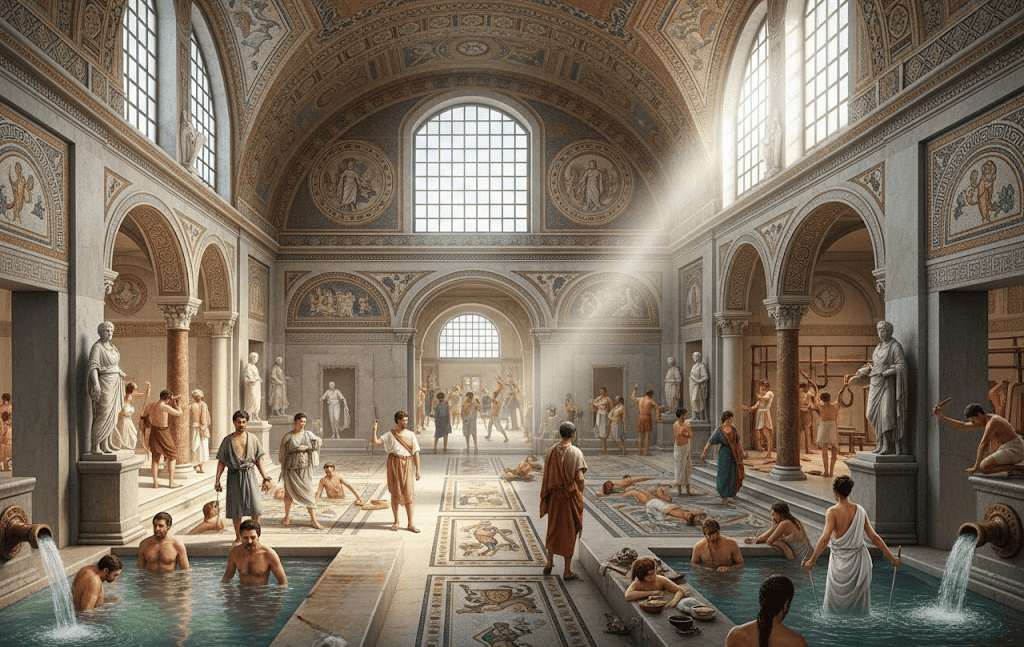
Romans believed water cleansed not just the body but also the mind. Public bathhouses were places to relax, socialize, and let worries slip away.
Warm water soothed tense muscles, while fragrant oils and massages added to the sense of calm. The act of stepping into the baths marked a clear break from daily struggles.
Today, a hot shower or long soak can still reset your mood and melt away stress. The Romans remind us that self-care often begins with simple rituals that help us feel refreshed, restored, and ready to face life with more ease and balance.
2. Strolling Through Gardens
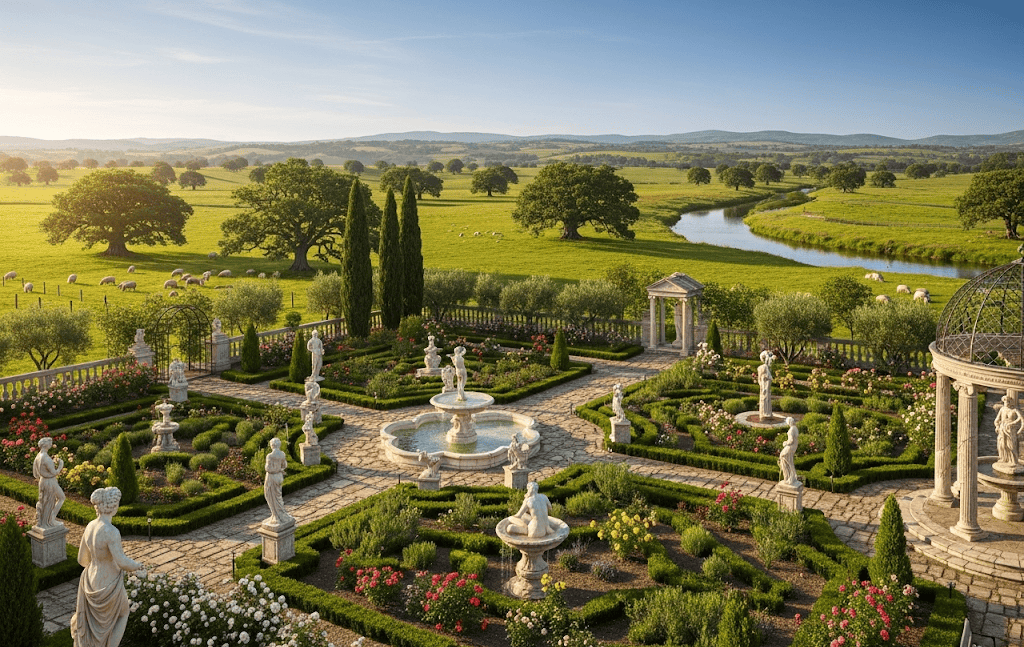
Romans valued nature as a source of calm and reflection. Wealthy citizens built lush gardens filled with fountains, statues, and fragrant plants where they could wander and clear their minds.
The gentle sound of water and the sight of greenery offered a sanctuary from crowded city life. Even modest homes often had small courtyards with plants for moments of peace.
Today, we know that time in nature lowers stress and boosts creativity. The Roman habit of strolling through gardens shows that reconnecting with natural beauty remains one of the simplest and most effective remedies for a restless mind.
3. Writing to Release Worries
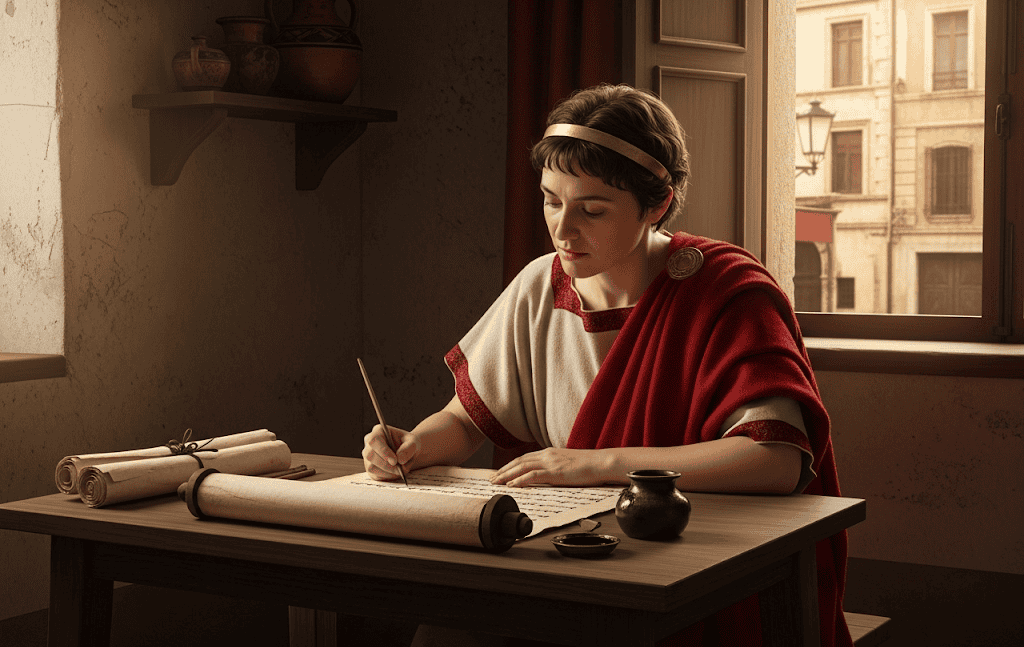
Romans like Seneca believed in the power of writing as a way to untangle thoughts. Letters and journals allowed them to reflect, process emotions, and gain clarity.
Putting worries into words made them feel smaller and easier to manage. Writing also created a sense of order in a chaotic world.
Today, journaling serves the same purpose, helping people track their emotions, set intentions, and release stress.
This Roman practice reminds us that writing does not need to be perfect or profound. It just needs to give our worries a place outside of our heads so we can breathe easier.
4. Rituals of Gratitude and Offerings
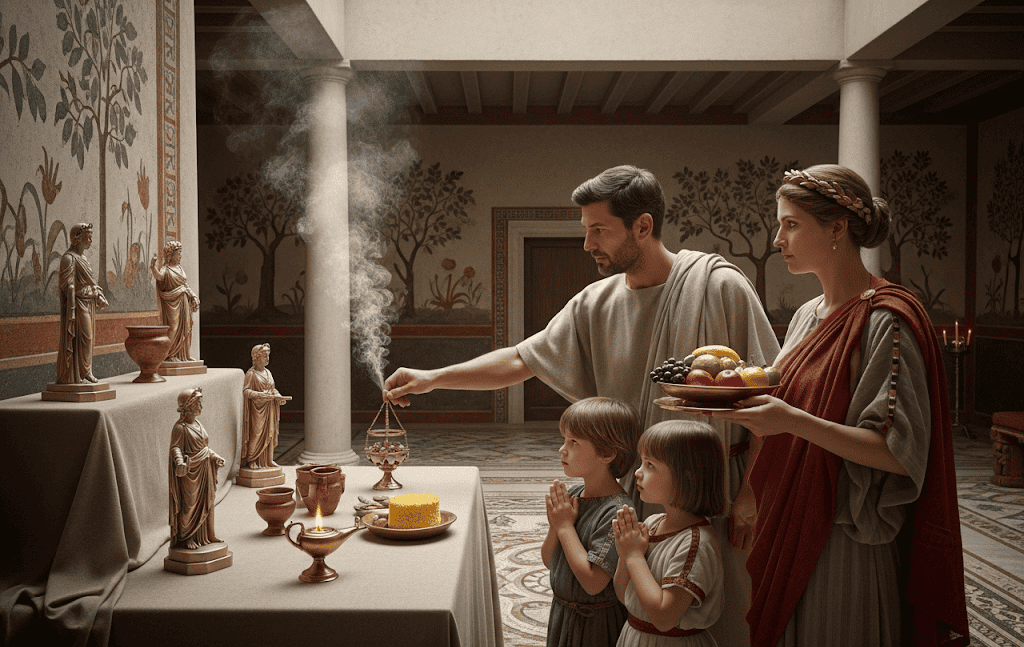
Romans often eased stress through small rituals honoring their household gods, the Lares and Penates. By lighting incense, leaving offerings, or saying prayers, they created moments of connection and gratitude.
These acts provided reassurance that they were cared for by higher powers. Even when life felt uncertain, rituals grounded them and reminded them of stability.
Today, whether through meditation, gratitude journaling, or lighting a candle, rituals still help us pause and focus on what matters.
The Roman practice shows that small acts of devotion, sacred or personal, can create calm and reduce anxiety in powerful ways.
5. The Comfort of Stoic Philosophy
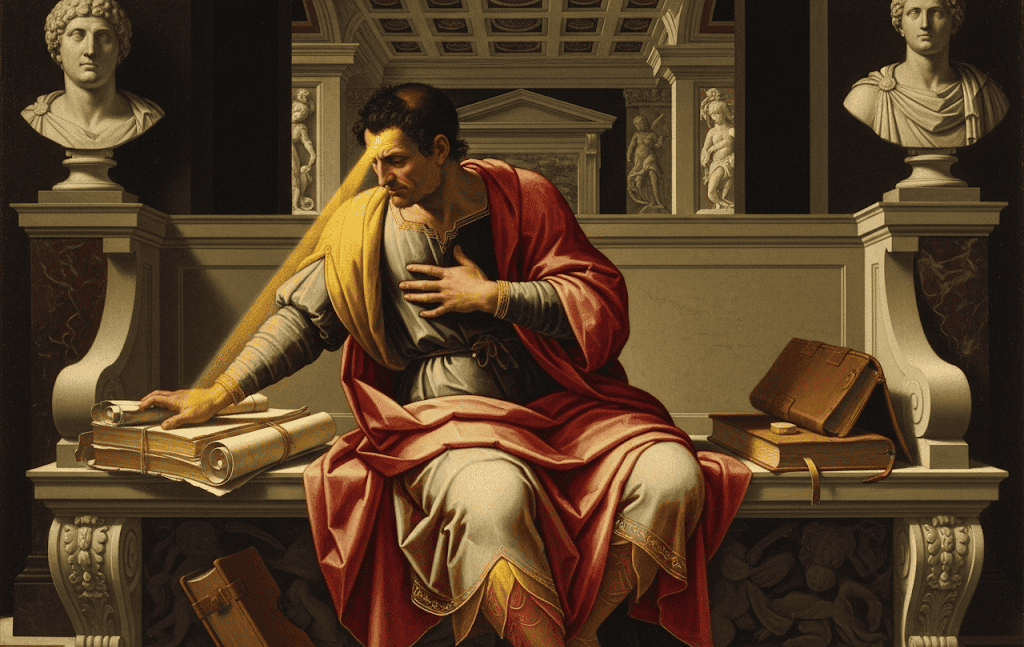
Stoicism, embraced by Roman thinkers like Marcus Aurelius, taught that stress comes from resisting what we cannot control.
Instead of panicking, they encouraged acceptance of fate and focus on inner strength. This mindset helped soldiers, rulers, and everyday citizens face challenges without crumbling under worry.
By practicing detachment from outcomes, they found freedom from unnecessary anxiety. Today, Stoic wisdom still resonates.
Reframing setbacks as opportunities to grow helps us manage stress better. The Romans remind us that while life will always bring difficulties, the way we respond to them shapes whether we feel overwhelmed or empowered.
6. Storytelling and Theater
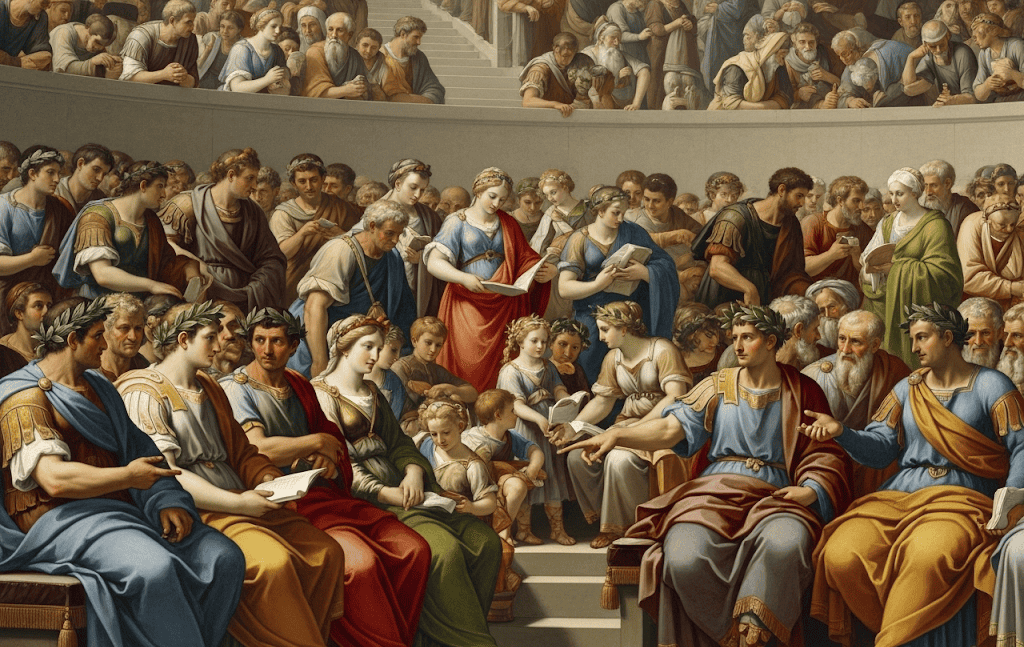
Entertainment was more than fun for the Romans; it was therapy. Attending plays, reciting poetry, or telling stories allowed them to laugh, cry, and release tension.
Tragedies gave them space to confront deep fears, while comedies lifted spirits through humor. Sharing stories in public created a sense of community and belonging.
Today, watching movies or listening to podcasts serves the same purpose, giving us moments to escape or connect emotionally.
Romans remind us that art is not just entertainment but also medicine for the soul, helping us process feelings and find joy even when life feels overwhelming.
7. Friendship and Shared Meals
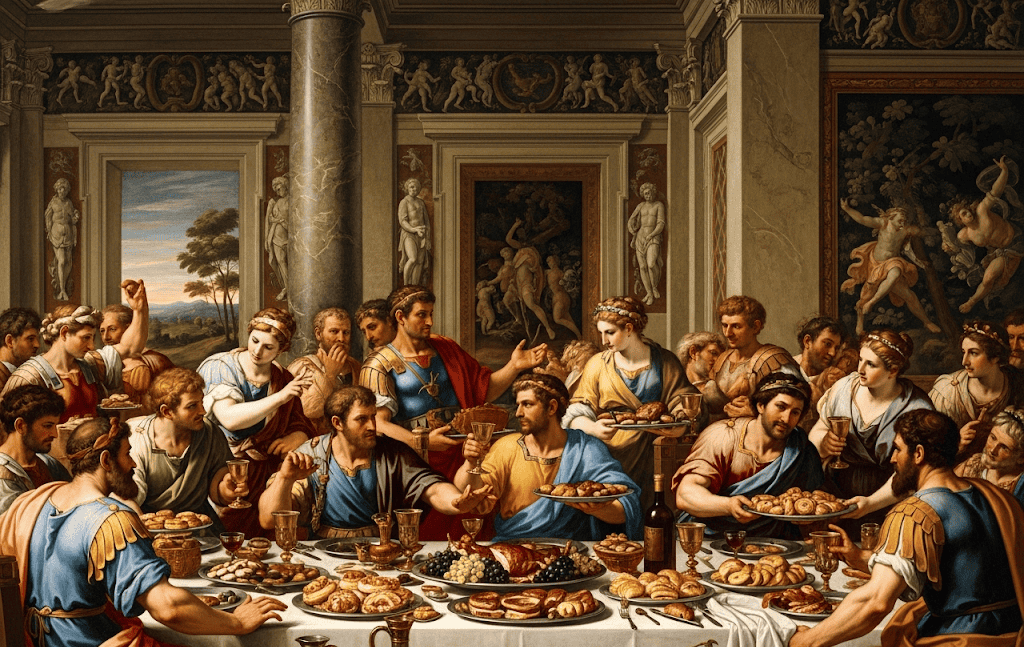
Romans loved to gather around food and wine, using shared meals as a way to strengthen bonds and ease burdens. Dining together was not just about eating but about conversation, laughter, and comfort.
Friends provided support during hard times, turning meals into therapy sessions with bread and olives. This tradition reminds us that stress lessens when shared.
Today, coffee with a friend or dinner with loved ones works in the same way. The Roman emphasis on companionship shows that connection is one of the most reliable remedies for stress, offering both joy and emotional relief.
8. Exercise and Physical Training
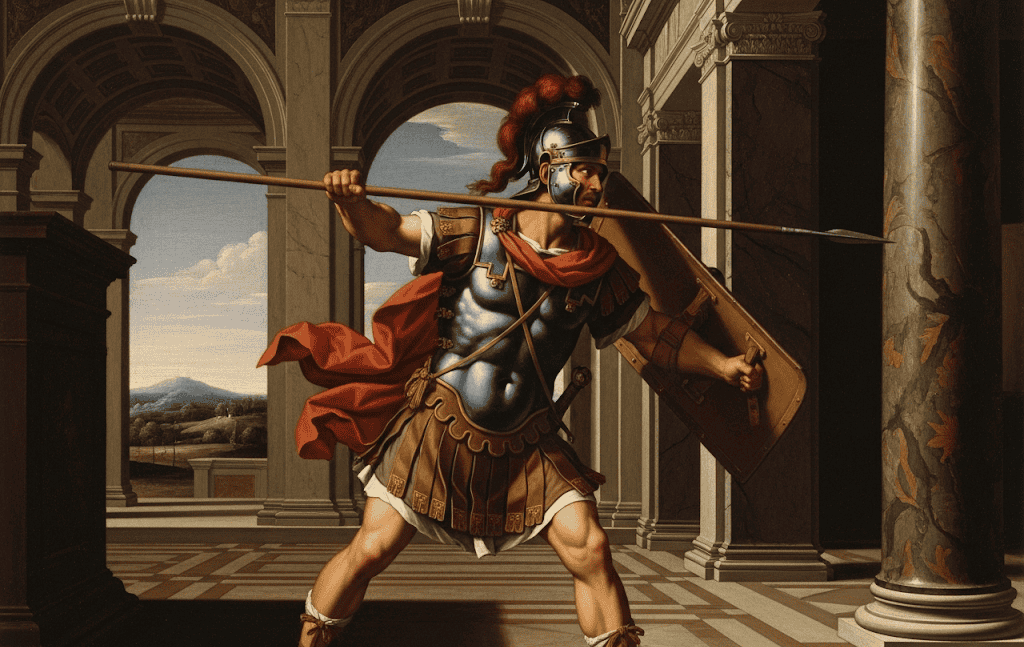
For Romans, keeping the body active was essential not just for health but also for calming the mind. Gladiators trained rigorously, but even ordinary citizens enjoyed wrestling, running, or practicing military drills.
Physical exertion was believed to burn off frustration and build discipline. Exercise created focus and resilience, making stress easier to handle.
Today, science confirms what Romans instinctively knew – movement reduces anxiety and lifts mood. It can improve everything.
Whether through sports, gym workouts, or a brisk walk, physical activity remains a timeless method for clearing the head. Romans remind us that a strong body often supports a steadier mind.
9. Escaping to the Countryside
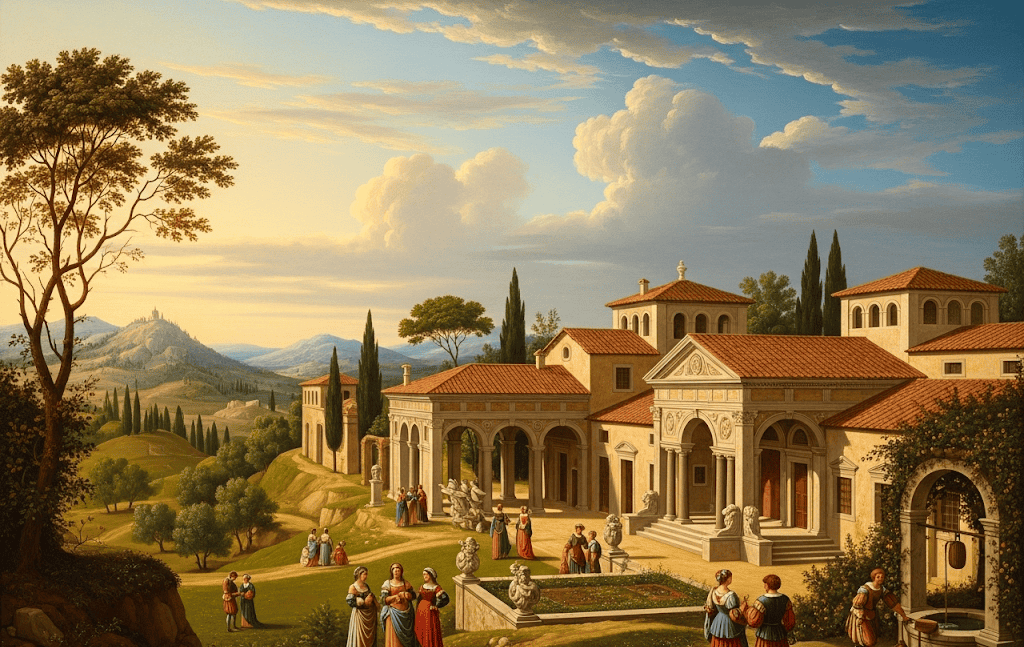
When city life grew overwhelming, many Romans retreated to villas in the countryside. Surrounded by fields, rivers, and fresh air, they found space to recharge.
The slower pace offered relief from political drama, crowds, and constant noise. This escape allowed them to return to the city with renewed energy.
Today, vacations and weekend getaways serve the same role. Even a short trip to nature helps us break from stress and reconnect with simplicity.
The Roman love of countryside retreats reminds us that sometimes the best remedy for worry is simply stepping away to find perspective.
10. Music and Relaxing Sounds
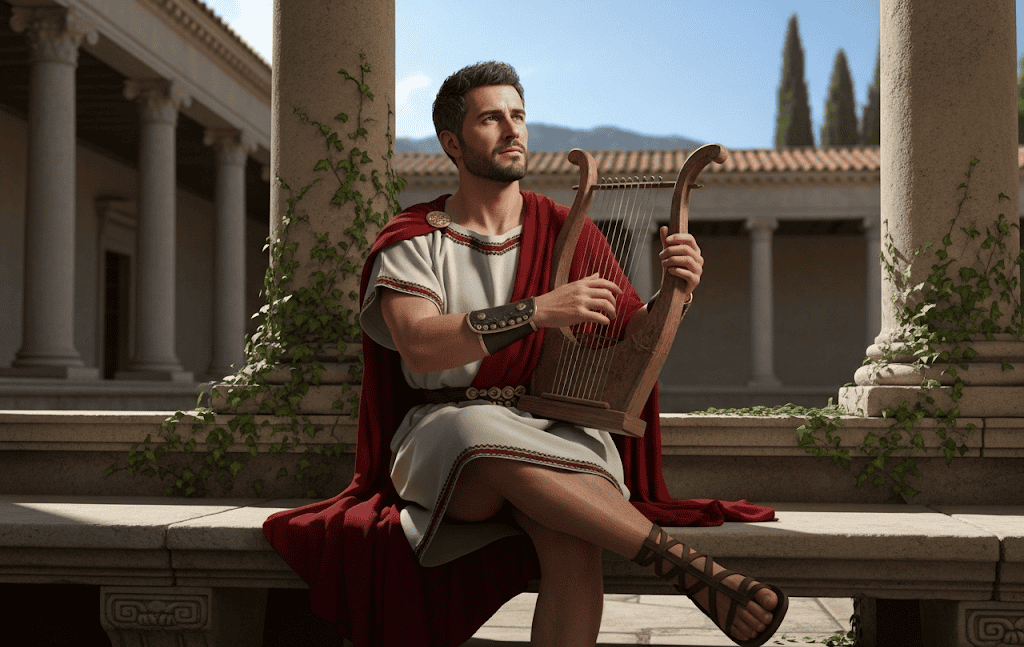
Romans used music as a way to soothe the spirit. They played flutes, lyres, and other instruments during banquets, ceremonies, and personal moments of rest.
Soft melodies lifted moods and created calm, while rhythm gave order to chaos. Music was seen as a universal language that touched both the heart and the mind.
Today, playlists and calming sounds are a common way to ease stress, showing that the Roman instinct still rings true.
Their embrace of music reminds us that harmony and rhythm are powerful tools for restoring peace, no matter how much the world demands of us.

Ho sempre sentito una forte connessione con il Divino fin dalla mia nascita. Come autrice e mentore, la mia missione è aiutare gli altri a trovare l'amore, la felicità e la forza interiore nei momenti più bui.

